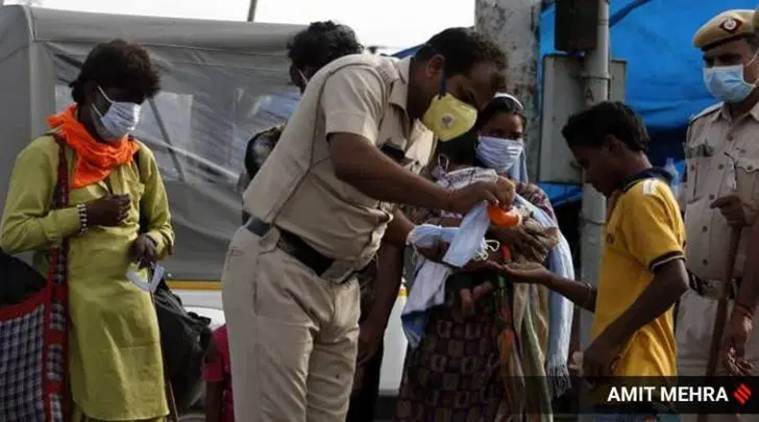 The isolation has disrupted plans and increased vulnerabilities among people. (Representational)
The isolation has disrupted plans and increased vulnerabilities among people. (Representational)
The police control room received a phone call, but this time it was not to report a crime. Instead, a woman in her twenties said she had Type I diabetes and needed to travel to her parents’ house in Sangli so that she could follow the diet recommended by her doctor.
“I have to take insulin injections four times a day. I share a flat with some friends in Hinjewadi, where I work, but due to the lockdown, my cook couldn’t come. I can make only basic meals, so my situation was getting worse by the day. Without a healthy diet, my glucose level rose to 350 and, the next day, to 500,” she says.
While the woman’s doctor guided her through the medicines, the police found a family that had been permitted to make the journey to Sangli and organised for the woman to travel with them.
“Even in my critical situation, the family agreed to let me travel with them. We were sanitising every hour and following social distancing in the car. I am grateful and thankful to the police. They have saved my life,” she says.
The police force, trained to maintain law and order in the city, has since the lockdown on March 24, enabled senior citizens living alone to get groceries, helped a woman who delivered a baby in the middle of the night and another, who wanted to travel to Assam as her father had died.
“On the one side, we are enforcing the lockdown and, on the other, we are going out of our way to help the citizens, especially seniors, women in distress, children, the homeless, beggars and transgenders. A lot of NGOs have come forward and we are collaborating with them. There is a social policing cell, which functions as a matching platform for supply and demand. There are a lot of areas where there is a need and there are 163 NGOs who want to give back to society. We are facilitating this exchange,” says Deputy Commissioner of Police Bachchan Singh.
The isolation has disrupted plans and increased vulnerabilities among people. Shraddha Sidhaye, who lives in Kothrud, was a caregiver for her bedridden father when news of the outbreak filled the news.
“I became worried that if anything happened to me, who will take care of my dad? Or, if something happened to my 65-year-old mother, I would not be able to handle two patients alone,” she says over the phone.
She went on Twitter and sent Pune Police a message. “I told them that I do not have much manpower to take care of both parents in Pune and would like to go to my hometown where my brother stays. They understood my problem,” she adds.
She received a digital pass to travel within a day and is organising an ambulance to make the journey. Then, there are delicate issues where personal relationships are complicated by the rules of lockdown. A young woman from Bengaluru had come to Pune on March 21 for a job interview and decided to stay with her childhood best friend. Soon after the lockdown was announced, the two had a fight and the woman was asked to leave the apartment. Though she was uncomfortable with the idea, she decided to go over to an apartment that a male friend shared with two other men. The hitch was that the society refused to allow a woman, who had come in with enough luggage to suggest that she had been travelling.
“They were apprehensive and asked to see my travel history, which I showed them. They said I could stay for only a few days as this was a bachelors’ apartment. I was staring at the prospect of being on the road because no hostel, paying guest was available that I could afford,” she says.
By the time Inspector Shilpa Chavan took over her case, the woman was in panic. “Her contact came from DCP Pankaj Deshmukh. We tried to look for a government shelter home but that was not available. I called PCMC (Pimpri-Chinchwad Municipal Corporation) Control Room and discussed the matter with them as she was in Wakad. They sent a police officer to talk to the chairperson of the society, who agreed to let her stay till March 15,” says Chavan, adding that every day brings calls for help and they are “trying their best to address” to address all.